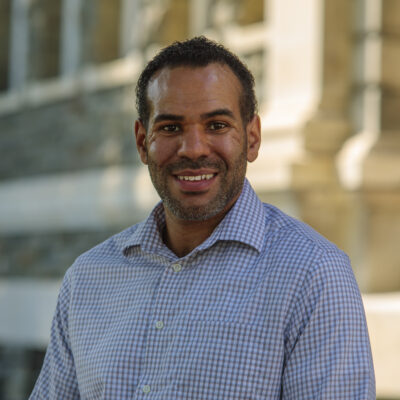Postdoc Spotlight: Zakhary Mallett

April 10, 2023
Zakhary Mallett is a postdoc in city and regional planning from the San Francisco Bay area. He holds a Ph.D. from the University of Southern California, and his research at Cornell focuses on whether transport subsidies are distributed equitably.
What is your area of research, scholarship, or work and why is it important?
When we travel, we generally do not think about the cost of the roads, transit, or other infrastructure we use, nor how much we are not paying for it. My research seeks to measure whether transport subsidies are distributed in an inequitable way and the extent to which they induce travel that causes the myriad of planning issues we work to mitigate.
What are the larger implications of this research, scholarship, or work?
Many contemporary issues in urban planning—sprawl, pollution, access inequity, and more—may partly be caused by transport subsidies that encourage inflated levels of travel. In other words, if travel was not subsidized, we likely would not travel so much, so not have the level of sprawl, pollution, and access inequities we work to alleviate today. I propose that, rather than focusing on the effect, public policy should identify and address the cause.
What does it mean to you to be a Bouchet Scholar?
Given the trials and tribulations I faced in my youth, I have great pride in my academic, award, and career achievements. Becoming a Bouchet Scholar is the latest milestone in my “rising above my raisin’.”
How do you exemplify the five pillars of the Bouchet Society—character, leadership, advocacy, scholarship, and service?
I was drawn to a career in transportation early in life. Against many odds, I was admitted to Stanford University and the University of California, Berkeley, where I completed my bachelor’s and master’s degrees, respectively. In graduate school, I began to doubt if practice was the right space for me. So, after graduating, I ran for public office, became the youngest person ever elected to a transit agency’s governing board, and sought to influence change through this leadership position.
My four years in politics cemented for me that I could make the greatest contribution to transportation and land use in academia (i.e., research and teaching) — hence, my earning a Ph.D. from the University of Southern California and now being a postdoc at Cornell University. Both as a Ph.D. student and postdoc, I have served on committees where I advocate to upend practices I believe systemically hinder underrepresented demographics’ entry and permanency in the academy.
What are your hobbies or activities do you enjoy in your spare time?
With good company, I enjoy travel, nature and outdoors, scenic drives, and dining. And perhaps it’s the academic in me, but I also love in-depth conversations.
Why did you choose Cornell?
Cornell University’s Department of City and Regional Planning is a high-ranked planning program and offered an ideal balance of colleagues I could collaborate with in my research and a void in scholarship focus I could fill. Now hired, I feel that I bring large marginal value to my department in terms of the courses I offer and research I produce, and sense that my colleagues and students feel the same. I certainly would not mind staying if my department, college, or the university were to make that possible.
Do you have any advice for current graduate students?
In life generally, I encourage assessing the road ahead so that you can plan ahead. For graduate students, this means thinking about your exit project (master’s students) or dissertation (Ph.D. students) subject early in your program so that you can map out an optimal course and study path to make the most efficient use of your learning. With that planned out, milestones will be easier to set and achieve, and defining a work-life balancing will be more manageable.
